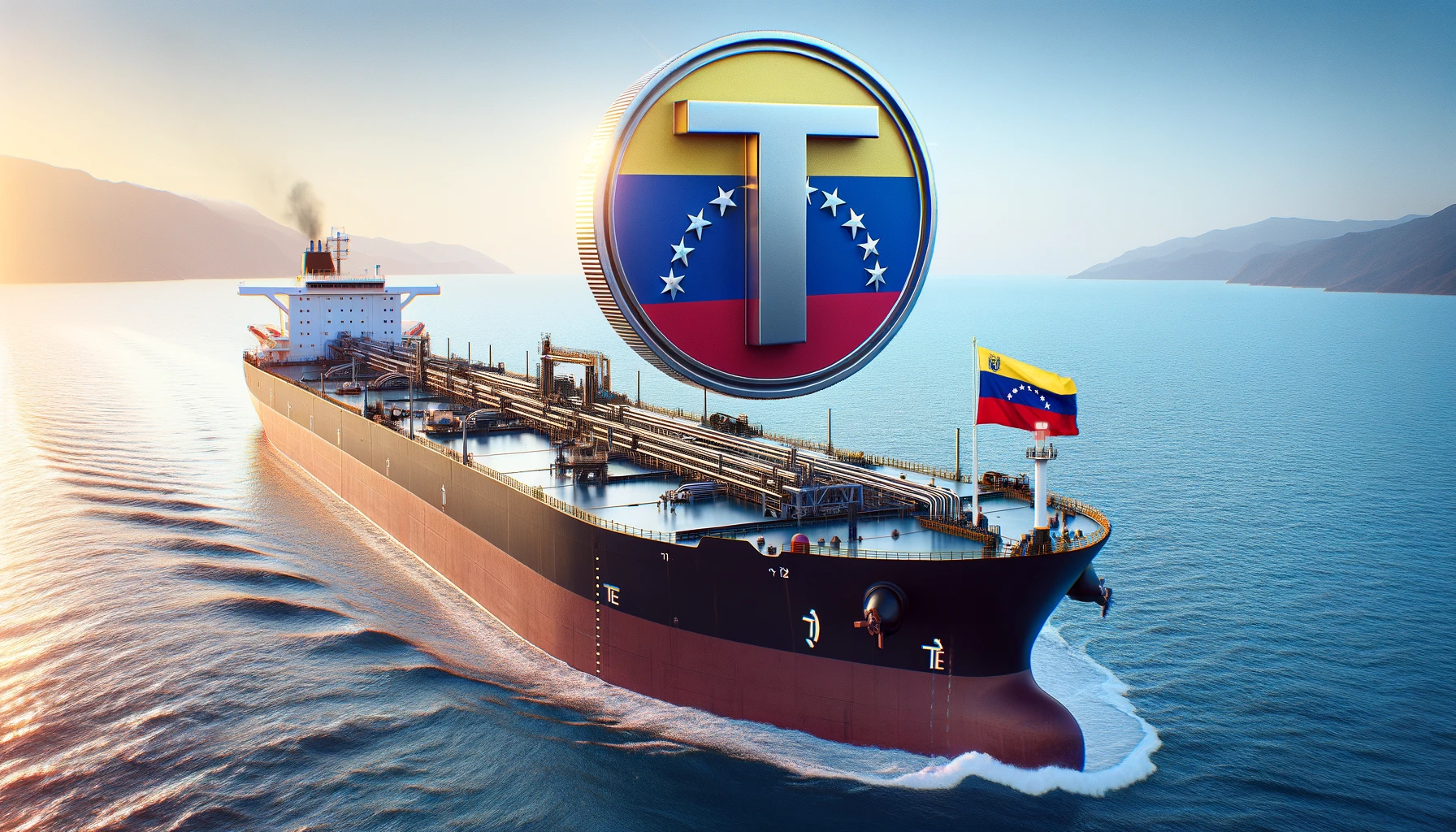As the United States reinstates oil sanctions on Venezuela, Venezuela’s state-owned oil company PDVSA is considering a greater reliance on digital currencies for its crude and fuel exports, as per a recent report by Reuters.
The U.S. Treasury Department has chosen not to extend a general license, providing PDVSA’s clients and suppliers until May 31 to conclude transactions. This decision is anticipated to impede Venezuela’s endeavors to boost oil production and exports, necessitating individual U.S. approvals for business dealings with the country.
PDVSA has been gradually transitioning its oil sales to USDT (Tether), a digital currency pegged to the U.S. dollar, since last year. The reinstatement of oil sanctions is hastening this transition, aiming to mitigate the risk of funds from sales being frozen in overseas bank accounts due to the enforced measures.
Acknowledging the use of various currencies in contracts, Venezuelan oil minister Pedro Tellechea highlighted the potential preference for digital currencies as a payment method in certain scenarios:
We have diverse currencies as specified in contracts. […] USDT transactions, as mandated by PDVSA, do not comply with any trader’s compliance protocols, making collaboration with an intermediary the sole viable option.
Utilization of Tether (USDT) in Oil Trading
Despite the U.S. dollar being the primary currency for global oil market transactions, PDVSA is transitioning numerous spot oil transactions to a contractual model requiring prepayment of half the cargo’s value in USDT. The company is encouraging new customers to hold cryptocurrency in a digital wallet, even in older contracts lacking explicit USDT provisions.
The recent U.S. license permitted trading houses and former PDVSA clients to recommence dealings with Venezuela, yet many have opted for intermediaries to fulfill digital transaction criteria.
While increased reliance on intermediaries may aid PDVSA in bypassing sanctions, it could lead to a reduced share of oil revenues reaching the company’s accounts.
Minister Tellechea remains hopeful about Venezuela’s oil sector, asserting that PDVSA possesses significant trading capabilities and is equipped to tackle the resurgence of U.S. sanctions. Nonetheless, oil experts predict that despite swift authorizations from Washington, Venezuela’s oil production, exports, and earnings will soon plateau.
Tether’s USDT stands as the leading stablecoin, boasting a market capitalization of nearly $110 billion per CoinMarketCap data. This currency is gaining traction among cryptocurrency users seeking to avoid volatility, as well as other entities viewing conventional financial institutions as adversarial to their sectors.
Furthermore, the United Nations has expressed apprehensions regarding the escalating use of USDT by money launderers.
Featured image: Ideogram

